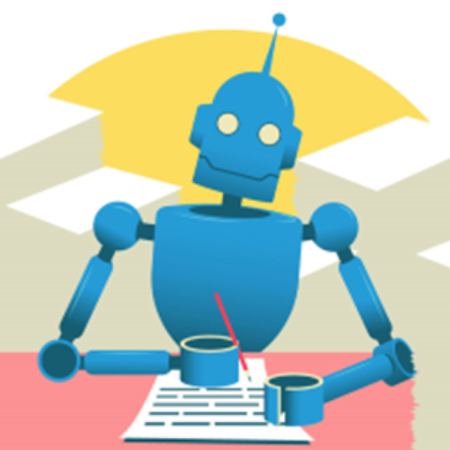Following my sermon last Sunday I’ve had a few conversations about Artificial Intelligence (AI). Most people are justifiably concerned about it. I think that concern is also reflected in our society at large. Despite that concern, it seems that a greater role for AI is inevitable. It will certainly affect our lives. No doubt AI can take over many jobs and even more so make many other jobs a lot quicker and easier. For example, engineering will be greatly aided by AI. The main question will be who might be at fault if something goes wrong. Logistics and warehousing may soon be fully managed by AI, with robots doing much of the manual work. Scientists will be able to analyse far greater data sets.
As my little AI song-writing experiment showed, many creative industries will also be impacted. Real live music will certainly be a luxury, if music can so easily produced at such great quality at the click of a mouse. Already today, books are summarised by AI and blog posts written on subjects. Will our news and opinion pieces soon be generated by AI? But whose opinion is it then? And computer-generated TV shows that we can personalise to our own tastes might soon be available. Then we are no longer bound by the story-lines of the producers, but whose story-lines will we be following?
The lines between reality and computer-generated environments will blur even more. With that there no doubt will be more sophisticated attempts at manipulation and deception, making humans naturally more suspicious. It will also result in more control measures.
AI will sometimes get it wrong and the consequences are serious. For example, recently a woman was ordered from a supermarket in the North Island, because facial recognition software identified her as a shoplifter. It was a case of mistaken identity. By going through the national office of that supermarket she was able to prove that she was misidentified, but the incident shows the extent to which facial recognition systems and other AI can affect us. Unfortunately, people of darker skin colour are more likely to be misidentified by such systems.
How do we deal with it in the church? I don’t want to instil too much fear. Still, I think we need to be cautious and emphasise the real in contrast to the artificial. Church should be a place to meet real people, even though they are far messier and more difficult than relationships in the artificial world. It also needs to be a place where human thought and speech guided by the Bible can challenge world views generated by AI. And yet, in some shape and form new technology will also change how we organise church.

